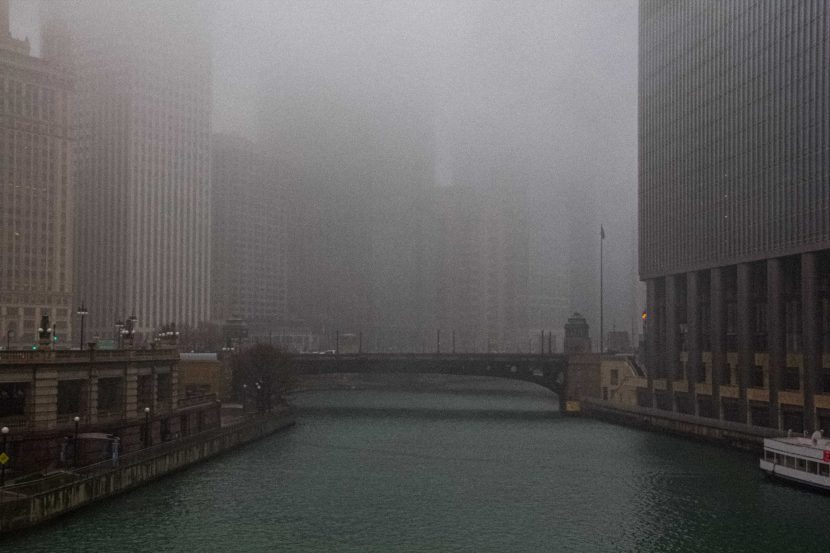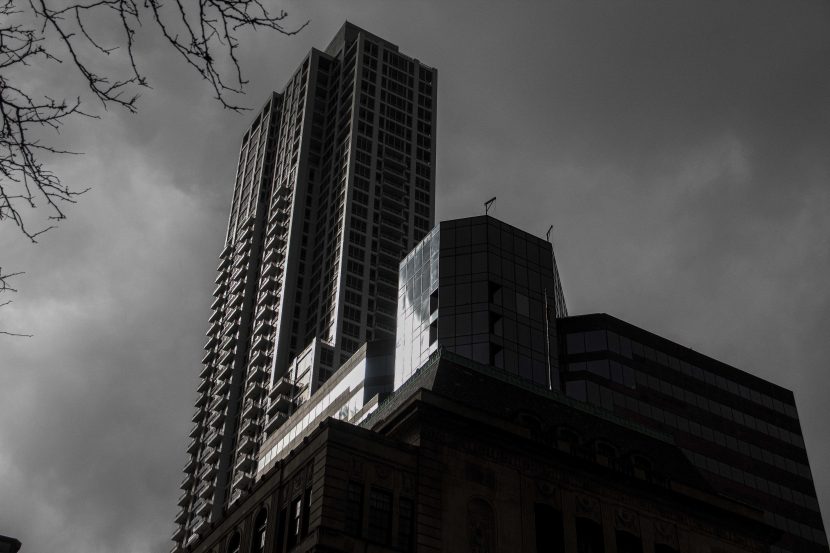Many words get thrown around with too little regard for their actual meaning and intent. Love, friend, truth…a long list. There are two languages, it seems, operating most of the time. One we could call Colloquial Usage, which basically is the common application of a blanket term to cover all possible manifestations of a subject. Friend is a case in point. we blithely label everyone with whom we have more than casual acquaintance of a positive nature a friend. We do this without thought, mainly because it’s easier than teasing apart the various components of what A Friend may really be. A friend is more than someone you might be glad to attend a barbecue with. A friend is someone with whom a complex lattice of support, sufferance, and deep connection makes them vital to one’s sense of self and well-being. You would go to the mat for a friend, walk (metaphorically or otherwise) over broken glass to help. Most people we label “friend” do not rise to that level, nor should we expect them to. A friend is special.
But language is what we make of it. It’s handy to have one word for a convenience when the nature of something might require a chapter in book to really explain—or even a whole book.
Such a word, it seems to me, is Freedom.
I grew up during a time when that word ramified in its applicable meanings in too many ways to codify. The cry of Freedom during the Sixties covered everything from the Civil Rights movements to the Sexual Revolution to the Cold War to Intellectual Revisionism to rejections of community expectation and onward. What it meant to Be Free for one group was occasionally anathema to another, yet the demand seemed the same across all forms. A prominent, if not necessarily widespread, meaning was to be completely without constraint of any kind. As a rejection of social conformism, one could see the source of this demand, but it reached a point where the very means by which such a condition was sought imposed different sets of constraints which resulted in a loss of viable action.
One of the more useful definitions I heard back then was the “responsible use of form.” This is a useful axiom. Unpacking it yields a myriad of conditions and leads to configurations of what we might mean by freedom that apply across diverse expectations.
We have first to understand those instances when a parochial expectation is at work that displaces a more universal application, and in this we must be concerned with the tension between Expectation and Application. It is in this where we find the failures of manifestation that plague history.
I recall seeing an interview with a Mujahideen fighter during the Russian occupation of Afghanistan. He was talking about his reasons for fighting and he said “We fight because we love freedom so much.” I was puzzled. Any cursory look at the society from which he came at once shows that what he meant by freedom was certainly not what I understand as freedom. For himself, it may have meant what he claimed, but as a country? What about the women? (And I don’t even mean the tragic malaise that descended on them once the Taliban took over.) And even in the aftermath, I’m sure you could ask those now in charge if they believe they are free and they would likely say yes. The apparent contradiction brings you to the assertion that freedom is a constrained thing that rejects acts regarded as outside the reasonable expectations of what freedom means.
But that’s there. What about here? It does not require much observation to see that different definitions are at play. What is freedom for one is anarchy for another.
How to square this circle?
Immediately we must accept, from example, that the concept is highly individualized. Freedom is a subjective concept.
Or is it? Clearly, many species exhibit an innate urge to be free of constraint. Escape is a common response to captivity. Perhaps we can attribute this impulse to some Darwinian imperative to maximize opportunity to reproduce (which captivity would severely hamper), but it’s impossible to know what other factors feed into this response.
So if it is based on a freedom from constraint, then the next question is, why do we then seek to constrain others? If it is a shared impulse, why do we in so many instances fail to recognize it as such? Is it a failure to recognize alternative expressions?
Or is it more a question of adaptation? These are the circumstances we have come to maturity within and because we are comfortable with these delineations we define living in those conditions with freedom. Change in those parameters increases a level of discomfort and if the changes are significant enough we begin to chafe and the talk of loss of freedom begins.
The question then is, are these changes actually oppressive or are they more unsettling? It makes a big difference, I think. Take for instance the current assertion among certain evangelicals that they are being oppressed. It is legitimate to expect an explanation as to how. Are there new laws in place that bar them from practicing their religion? Or is it just that they find the shifts in common practice unsettling? If their next door neighbor stops going to church and then puts a political sign on their lawn supporting someone who is seen as a secularist, how is that oppressive?
Within their own conception of freedom, living in a community that privileges their faith, which allows an expectation that they are part of a culturally dominant ideology, it may well appear that the scaffolding of those expectations is being dismantled and leaving them without a previously unexamined support. In other words, more and more it appears that, in this particular instance, they’re on their own.
Again, is this oppression?
Assuming the support you have till now enjoyed was built in by fiat—a community declared privilege which required support from all members of that community, regardless of personal disposition—and now that support is being withdrawn, then perhaps an argument can be made. If, on the other hand, what support there had been was simply assumed, without any codified commitment to back it up, then its loss is less a matter of conscious oppression than it is evidence of a shift in common priority. Naturally, this will upset many people who based their conceptions of living within that community on the erroneous assumption that their perspective was a fundamental right.
Let’s move this example to a different (though in many ways related) area. Women living independently of so-called traditional family structures.
In this we have competing claims of oppression and demands for freedom.
If we accept that “freedom” is based on an assumed right and ability for action within a given form, then it becomes clear that when a group, for whatever reason, is denied an opportunity for said action by another group, we may plausible label such denial oppression. If such denial of action is done for the presumed benefit of the dominant group, then we can see how oppression can edge into a deeper form, even slavery, especially if the benefit claimed is the justification for the continued oppression.
Now we have a basis on which to evaluate claims of oppression. Range of available action combined with the comfort of assumed privileges constitute the rough parameters of a particular claim of freedom. The constraint of said actions for the maintenance of said privileges for a dominant group constitutes oppression. We have a term that usefully sums up the net result.
Denial of agency.
What do we mean by “agent”? I will refer to a definition, from the Oxford Guide to Philosophy.
Agent: a person (or other being) who is the subject when there is action. …the property of an agent is (i) possessing a capacity to choose between options and (ii) being able to do what one chooses. Agency is then treated as a causal power.
This is fairly neutral. When applied, the question is who can act and who cannot. It follows then to ask why one who cannot act cannot do so.
A further question relevant to this discussion then is: does one agent’s freedom to act require the curtailment of another’s equal freedom? If it does, then it must be asked if the former is asserting a legitimate claim for freedom.
Being inconvenienced is not oppression.
People who are not used to being inconvenienced unsettle easily.
When confronted with a claim that “my freedom is being taken away” it is always necessary to ask how? Basically, what can’t you do now that you could before [fill in the changes being challenged] occurred. If the response is that one’s assumption of dominance is being constrained, then perhaps it’s not “freedom” being taken away but privilege.
Still, freedom is in this sense a very personal thing, a feeling perhaps more than a set of objective conditions. To say one is free when that sense of being encumbered unfairly occludes clear assessment is difficult to get past. To this extent, we construct (or yield to) our own internal metrics.
But this is a problem of preference. Choosing the metrics by which you claim freedom or lack of freedom would suggest, since they are your own and you can choose them, you are, to that extent, free. The question then is, why doesn’t this contribute to your sense of freedom?
It may seem that this is playing games with the idea, that deconstructing the parameters in order to change a perspective which may or may not be valid is insincere. But I refer back to that statement by the Mujahideen fighter, who was clearly self-defining, on some level, his own metrics of what freedom meant. The consequences for his view prevailing may well have validated his sense of freedom, but by broader standards it did nothing for those bound to his view who did not meet his criteria.
There are two elements involved, one metaphysical, the other political. They are entangled, of course, but for many people the differences present no distinction. Metaphysically, though, we are dealing with determinism. Questions of Free Will stem from questions of what aspects of our apparent will to choose are in fact matters of unfettered choice and which are defined by all the other factors which constitute lived reality. In other words, what does it mean to Be Free when we are not able to choose actions closed to us by virtue of being both inconceivable and undoable. We might wish to choose to fly without artificial assistance, but we have neither the biology or the environment to do so. It becomes a matter of wishful thinking. A question of whether we are free to fly on our own is meaningless outside the imagination. Further, we may wish to transcend our mental limitations, but without knowing what that might look like, how that might manifest, it is a choice without a conceivable goal. Again, in the realm of imagination, we might come up with a variety of scenarios in which the consequences of such transcendence might be imagined, but the core transcendence itself is too incoherent to “see.” Likewise “interdimensional” travel. We have the term and popularly might imagine it much like moving from one room to another, but we have no basis for knowing what it would look like to actually do so.
We can spin scenarios endlessly, but I think the point is made. (Note though that conceiving the ideas can result eventually in some manifestation that conforms to our expectations—hence airplanes, subatomic physics, AI…)
Setting that aside for now, we come back to the question of what it means to be free to do what we want in a world where what we want is not doable. Are we not free, then?
While this kind of thing can be fun as a game, it is a good way to lose the point of the question. Besides, we are here more interested in the political aspect of the question. They are, however, conjoined. In that sense it comes down to a question of what criteria does one use to define freedom and are such criteria legitimate?
To an extent, this can become an inversion of the previous state of being unable to do what is inconceivable, wherein one establishes what cannot be done (or, in many instances, what is not allowed to be done) and then using that as justification for claiming a loss of freedom. The question slips back and forth between legitimate restrictions and imagined constraints. And of course the paradox arises when we ask whether or not we are free to imagine whatever we like.
To a great extent, it’s a silly question. How can anyone stop us? But at some point the freedom to do so bleeds over into actions. Are we free to act on anything we conceive?
It is within those two states—conception and action—that all political questions of freedom reside. (Perhaps, as an amusement, it might be fun to compare this to the above notion of interdimensional travel.)
Clearly, we are not free to act on just anything we might conceive. There are many reasons, both metaphysical and concrete, but the chief one is that we must be mindful of how such actions impact and impede others.
Which brings us back to the question of form. The responsible use of form. This goes to the question of determinism in key ways, but basically it is the ground upon which a social contingency to enable the optimum manifestation of freedom may be constructed. Insofar as it impinges on Agency, the question is one of compromise before all else based on a recognition of Other Minds. In other words, room must be made to accommodate others who have the same interest in finding a field of action consistent with a sense of freedom.
I’ll leave this for now and come back later. For now, some things for consideration.

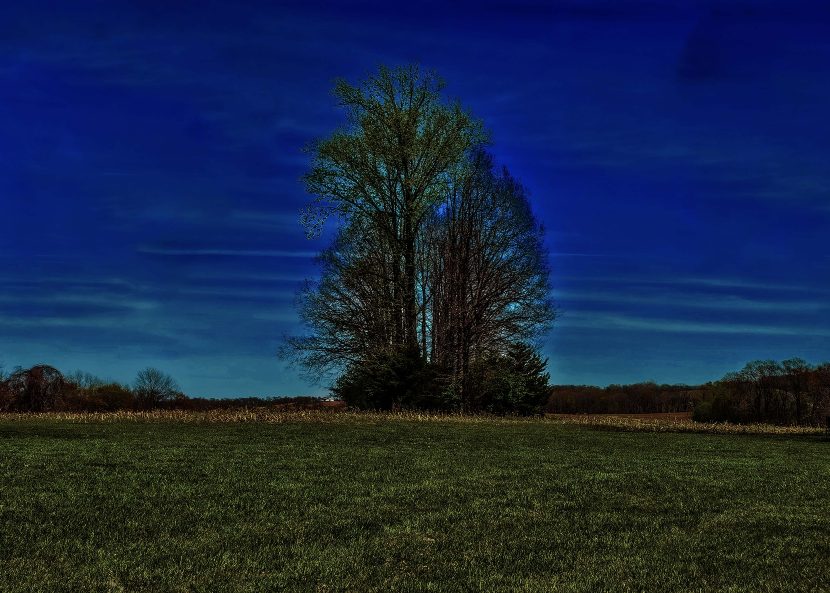
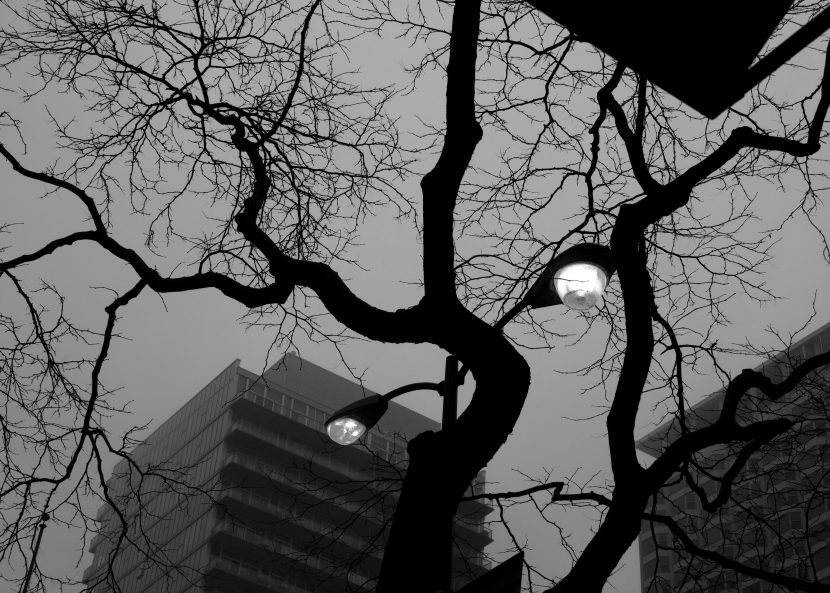

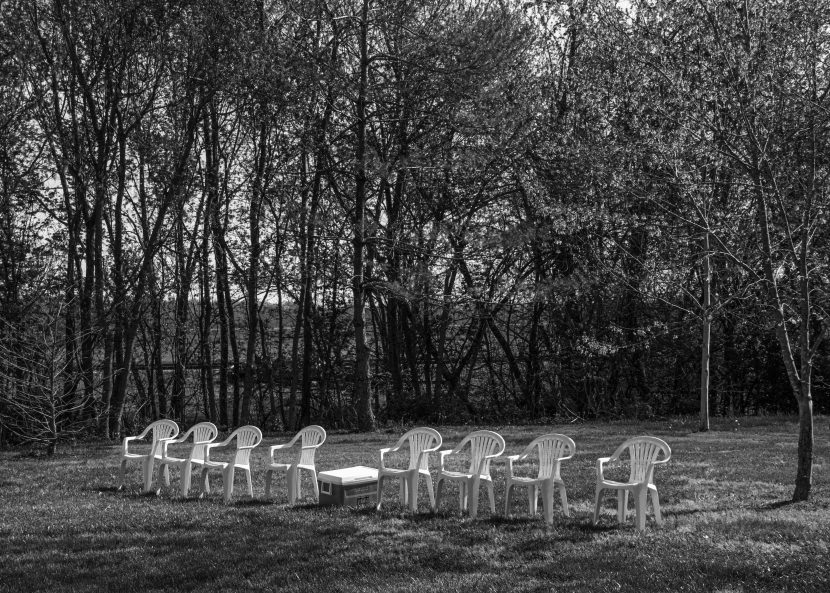

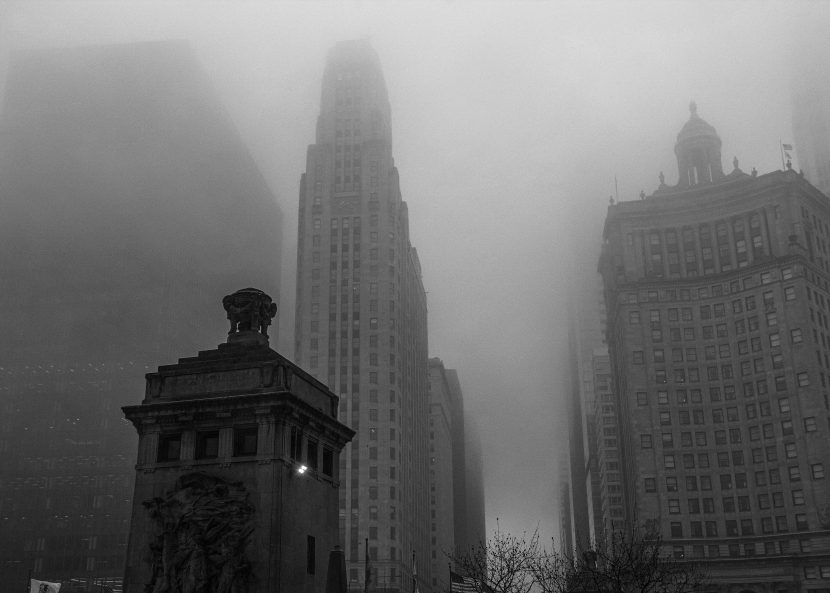
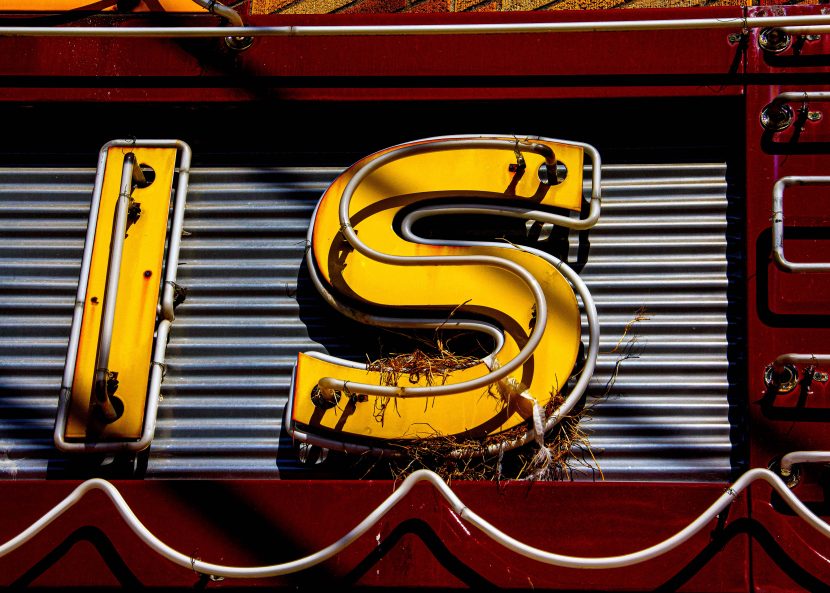

 seafood fan, but this was all wonderful. (If you go, ask for Andrew.) And then, the special deal, Donna was able to indulge her love of smoked salmon for breakfast.
seafood fan, but this was all wonderful. (If you go, ask for Andrew.) And then, the special deal, Donna was able to indulge her love of smoked salmon for breakfast.